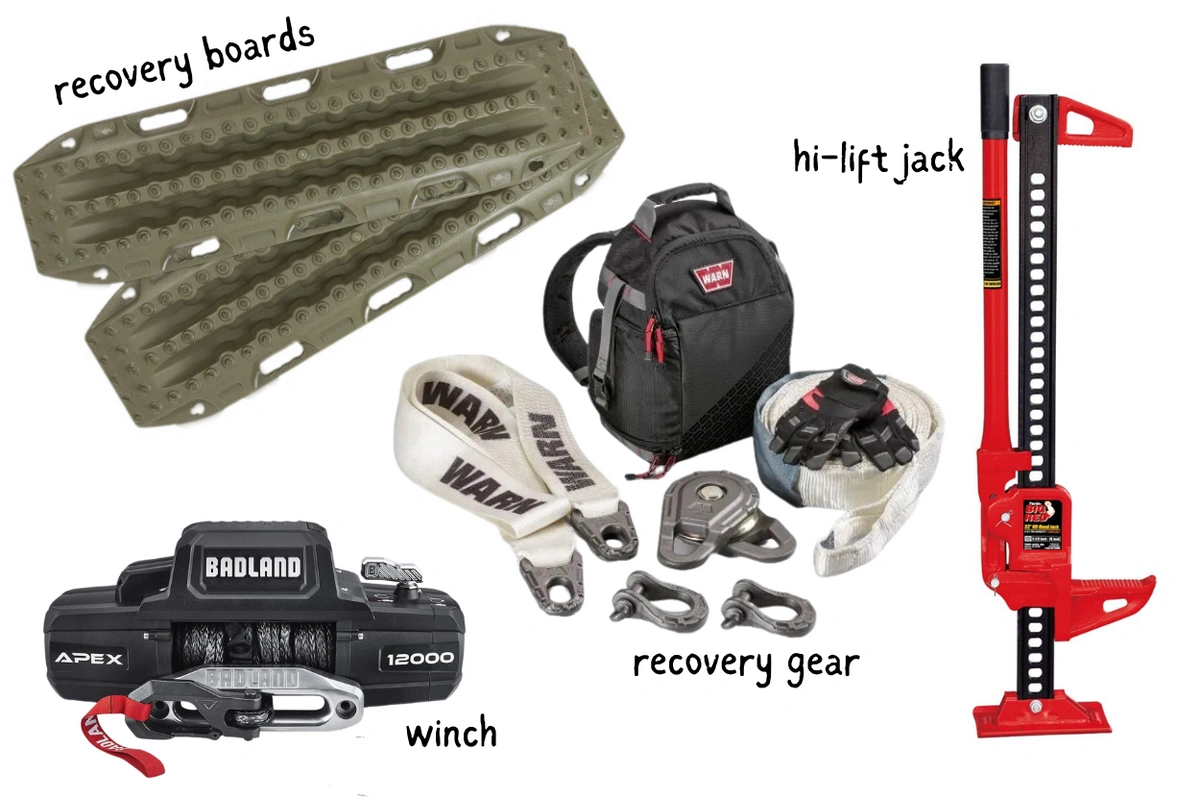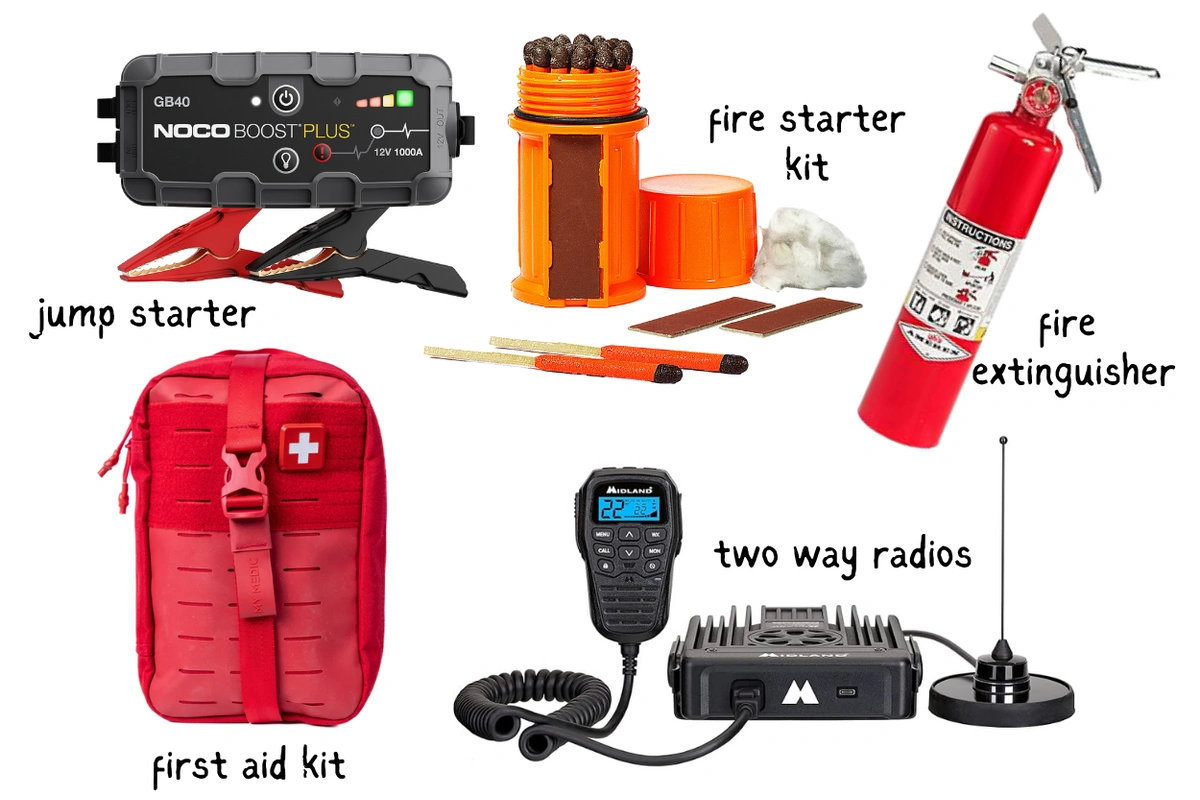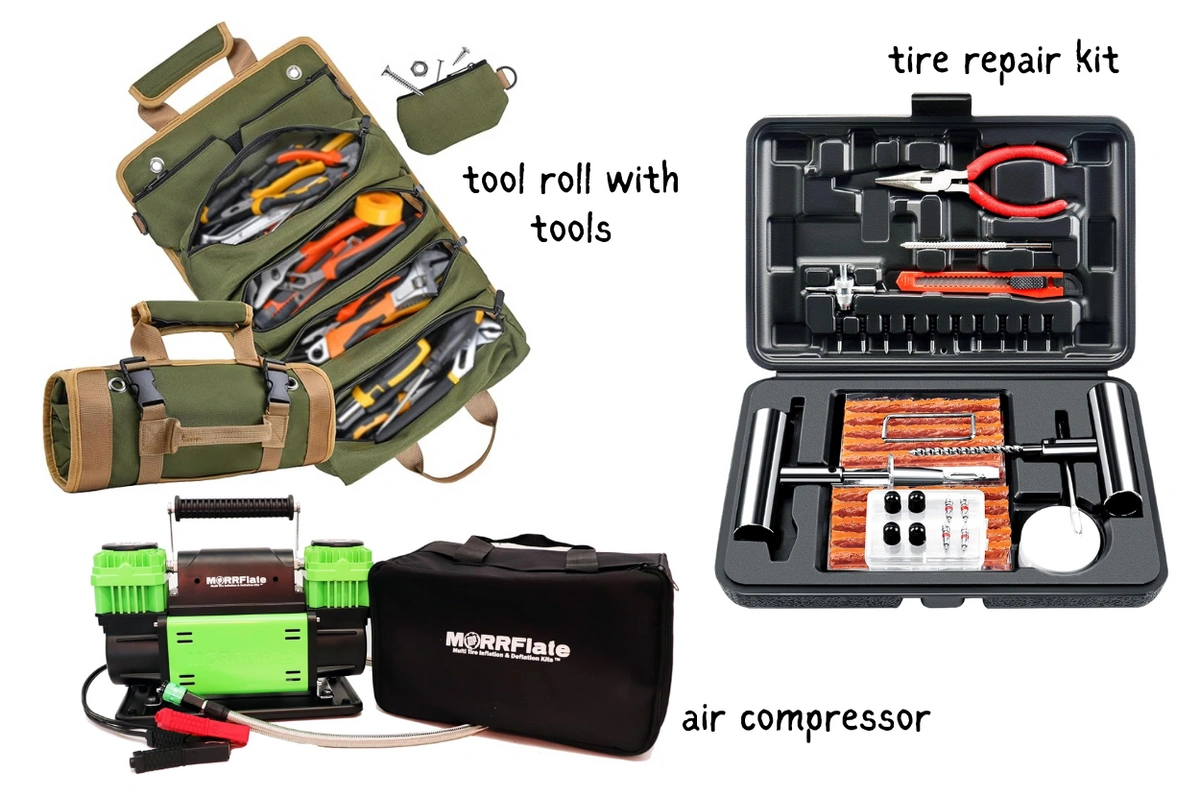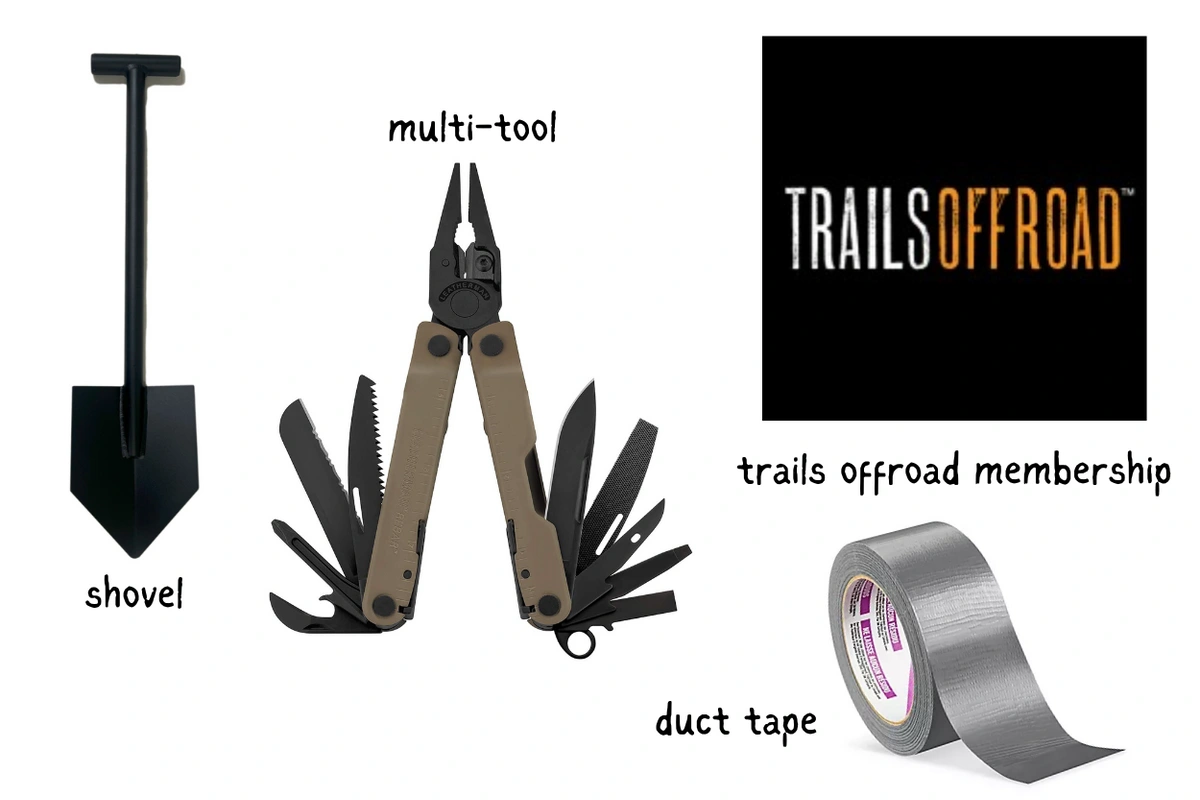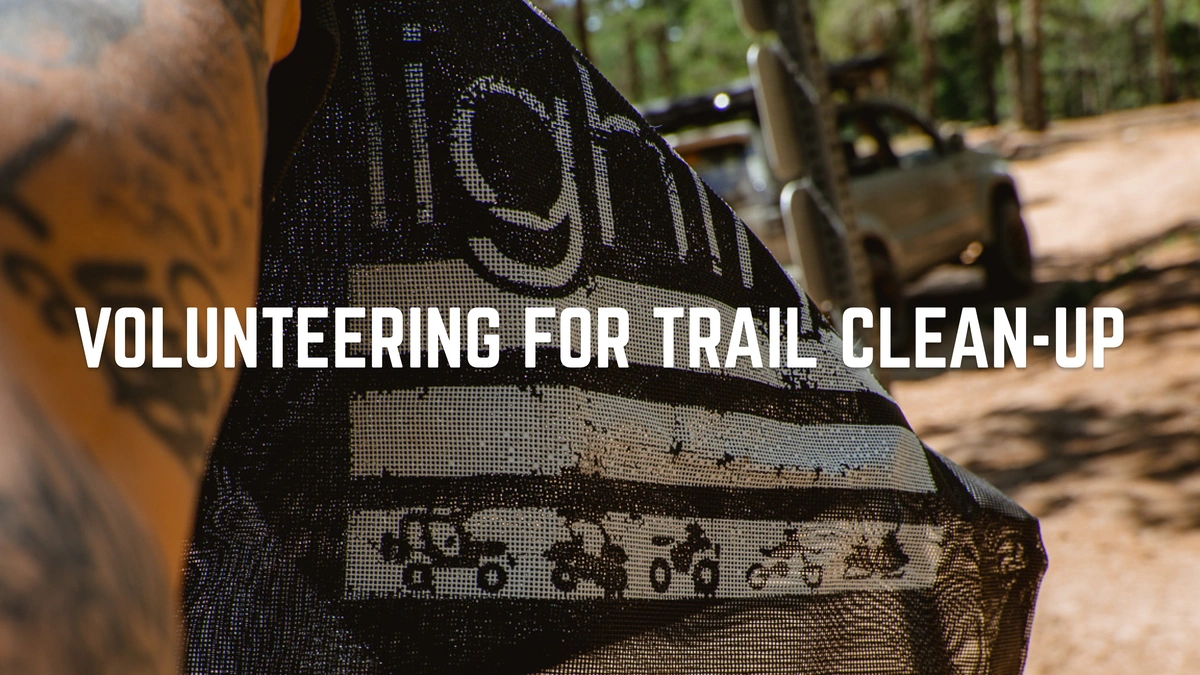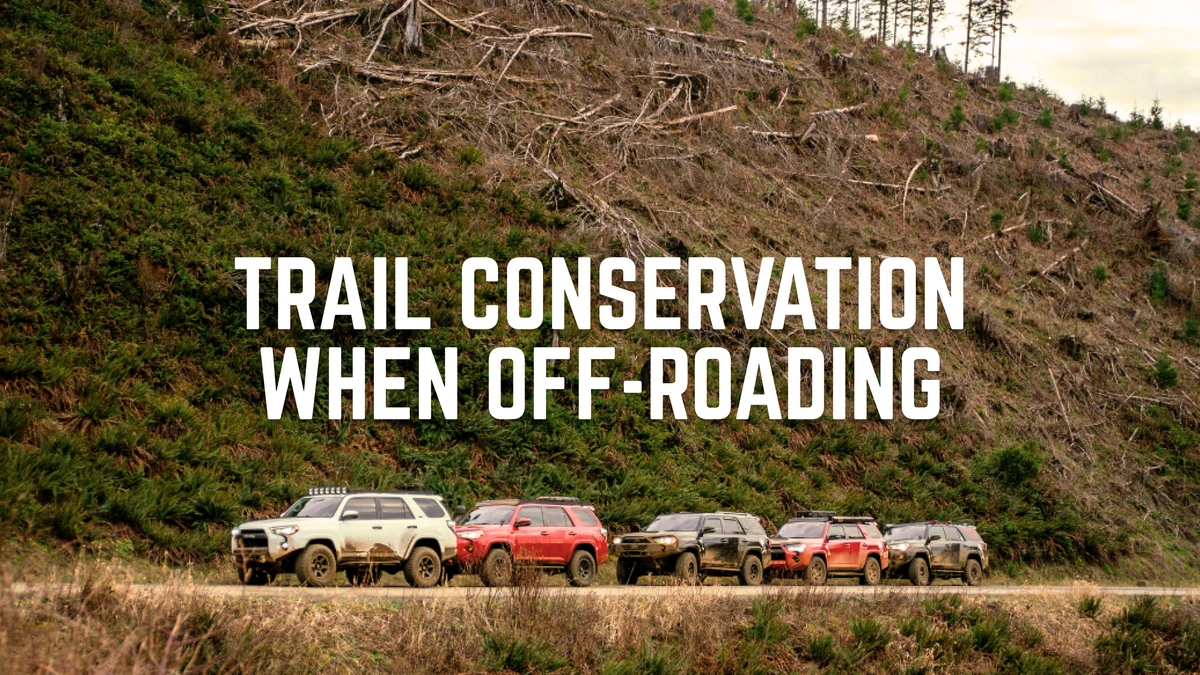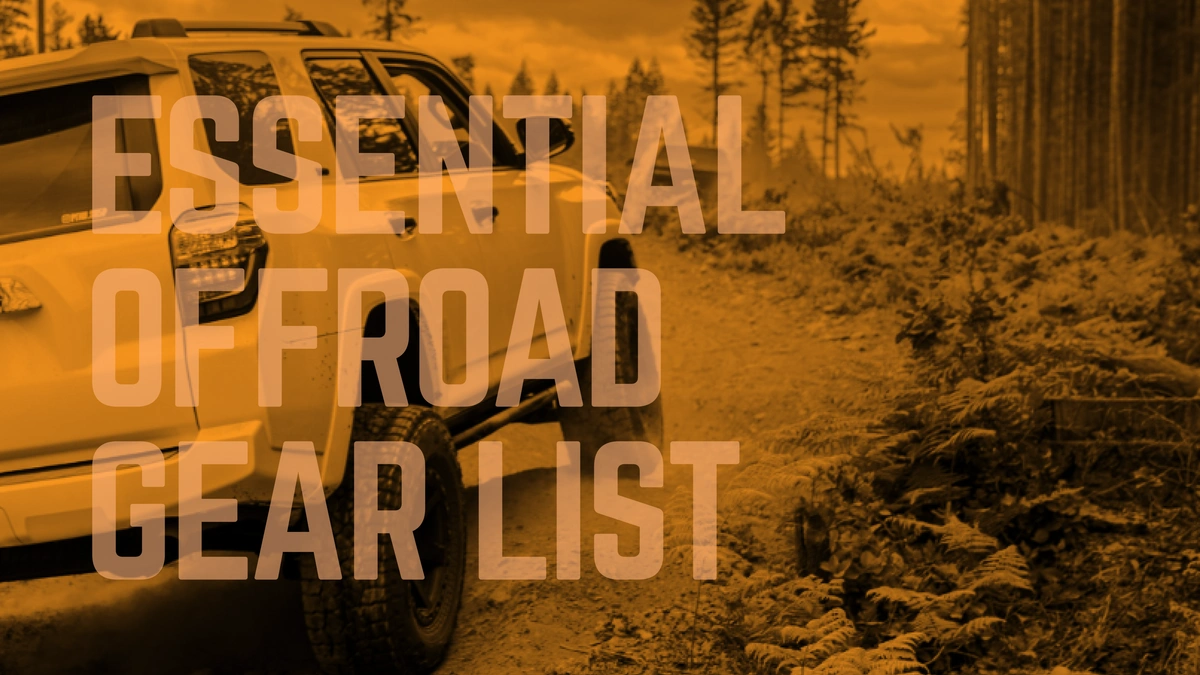
Essential Gear to Bring for Offroad Adventure
Summer is here, along with one of the busiest times for offroad adventure! Whether you're heading out for the first time or looking to build up your essential kit, this post is for you.
Being well-prepared is key to a successful trip, whether you're an experienced off-roader or a beginner. This guide explains the bare minimum of the necessary gear to hit the trails.
Getting stuck or facing mechanical issues is always possible on the trail, so having a well-stocked recovery kit is crucial to getting your vehicle back on track. And while this list may not cover every possible item, it provides a solid foundation to ensure a safe return home.
Here's a look at the gear you need to make your off-roading adventures safe and enjoyable.
Recovery Gear
-
Recovery Kit: Your kit should at least contain recovery straps, snatch blocks, shackles, tree savers, d-rings, and gloves. Depending on how stuck you end up, you may need various recovery gear to recover your vehicle, which is a good base for the things you’ll need.
-
Traction Boards: Traction boards are crucial for those planning off-roading in terrain that can impact grip. If you’re traveling to places with mud, sand, and/or snow, you should bring a set of boards with you if you get stuck and need to regain traction. These are also great to use in combination with your recovery kit.
-
Recovery Jack: There are a few jacks that you can choose to bring with you when off-roading. The most popular option will be a Hi-Lift jack. Depending on the extent of your damage, you may need to make a repair out on the trail that will require a jack. While heavy damage isn’t common, it's better to be prepared.
-
Winch: Though not essential, a winch makes recoveries much easier by allowing you to pull your vehicle out of tough spots with minimal effort. If you plan off-roading by yourself, having a winch should be mandatory. However, you may not need one if you tend to go with a larger group.
-
Point of Recovery: Ensure your vehicle has a sturdy recovery point. If not, you'll need to install one, as many vehicles don’t have this point that you can safely attach recovery gear.
Emergency Gear
-
Two-way Radios: For those who tend to go offroad with a group, you should always have radios for each group member. Many remote areas will not have cell service, and you will need to communicate with your group members at some point during the trip. Or, if you plan on going over larger obstacles where a spotter is necessary, a radio will help.
-
Extra Lighting: Bringing extra light sources is essential for nighttime emergencies, whether stranded on a trail or needing to perform repairs in the dark. A good work light ensures you can see and be seen. I would suggest at least having a hands-free light so that you don’t have to worry about holding anything when repairing your vehicle.
-
Jump Starter/Jumper Cables: Dead batteries out on the trails aren’t very common, but when they are, you’ll want either a starter or cables, depending on whether you are with others or not.
-
First Aid Kit: Everyone should have a first aid kit with them on every adventure. You will want to fill it with all of the basics, such as bandaids, pain relievers, disinfecting solutions, and tourniquets, among other items. You can find many companies selling first aid kits that are full of all the necessities. And if you frequently travel with pets, don’t forget to bring them a separate first aid kit.
-
Fire-Starting Kit: For safety reasons, you should always bring a fire-starting kit, regardless of whether you plan on starting a fire. If you plan to make a campfire, please educate yourself on properly putting the fire out.
-
Fire Extinguisher: Everyone who plans to frequently go offroad should bring a fire extinguisher. You never know when something may go wrong and your vehicle may catch fire.
-
Blankets: Blankets are a must-have for everyone. If you’re looking to save space, get some emergency blankets. If you have a designated space for blankets, get compact sleeping bags.
Vehicle Maintenance
-
Tool Roll Filled with Tools: Always bring a set of essential tools for performing repairs and maintenance on the go. It should include wrenches, screwdrivers, pliers, sockets, and other basic tools. Zip Ties are also a must-have on the trails as they can help temporarily fix various situations.
-
Full-size Spare Tire: You should always have a full-size functioning spare tire. Remember to check it periodically for damage.
-
Tire Repair Kit: A tire repair kit, in addition to a full spare, is a must-have. Sometimes, plugging a tire will be sufficient to safely get you back on the road until a more permanent repair can be made.
-
Air Compressor & Hoses: Depending on the type of trail you are planning to explore, you may want to air down. An air compressor and hoses are essential to get you to your preferred PSI before and after the trail. You can also get a tire deflator(s) to easily deflate all your tires without setting up your air compressor.
Miscellaneous Essentials
-
Trails Offroad Membership: If you are looking for new trails to explore, the Trails Offroad Membership can provide you with many options. The database of 4WD trails includes trail difficulty, obstacles, points of interest, and camping locations. The offline capability helps you plan and navigate your offroad adventures with confidence. And you can easily track new trails to reference later.
-
Trash Bags: Bringing trash bags is essential for packing out all your trash, keeping trails clean, and respecting the environment. Even if you don’t plan on having any waste, it’s always great to bring some with you if you find any trash along the trails.
-
Multi-Tool: This compact and versatile tool combines multiple functions, such as a knife, pliers, screwdriver, and more, making it useful for various minor repairs and tasks.
-
Duct Tape: An incredibly versatile item for temporary repairs, patching up leaks, securing loose parts, and many other uses.
-
Shovel: This tool is useful for digging out your vehicle if it gets stuck, creating a fire pit, or clearing a campsite. You’ll need a shovel often, so you might as well purchase a small one that can be permanently stored in your vehicle.
